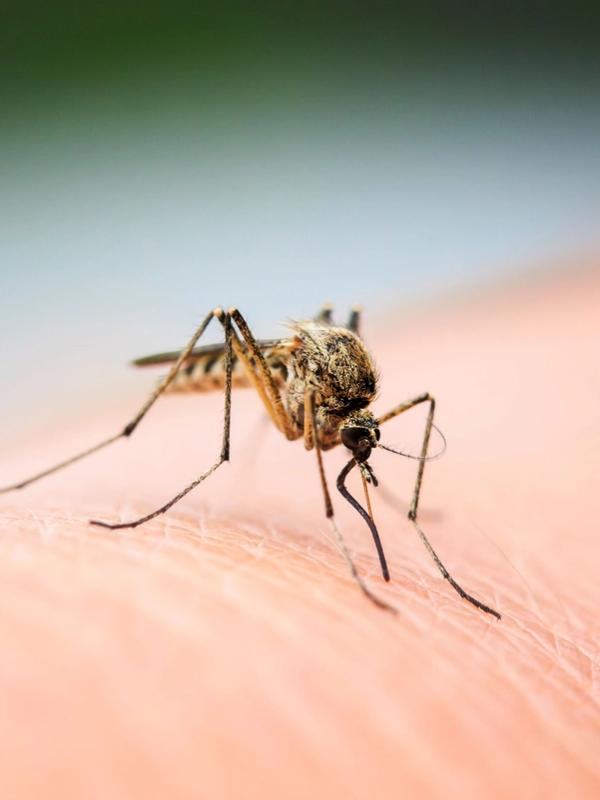
Are there mosquitoes in Iceland? Complete 2025 Guide
Ever set up a tent without hearing that familiar buzz in your ear? In Iceland, you can. This Nordic island is one of the few places on Earth where mosquitoes simply don't exist. It's not a marketing claim; it's a fact that makes outdoor adventures in Iceland more enjoyable.
If you're planning a trip to Iceland, here's what you should know about its mosquito-free status, why it exists, and what it means for your outdoor experiences in 2025.
Key takeaways:
- Iceland is genuinely mosquito-free, one of only two places on Earth (along with Antarctica) without these insects
- The absence is mainly due to Iceland's unstable climate and geographic isolation
- You might encounter midges at Lake Mývatn, which are often mistaken for mosquitoes
- Climate change could eventually bring mosquitoes to Iceland, but they haven't arrived as of 2025
- Travelers can enjoy bite-free outdoor activities but should still prepare for midges in certain areas
Iceland's Mosquito-Free Status: Fact or Fiction?
Iceland's reputation as a mosquito-free place is true. Unlike almost everywhere else, you won't find a single native mosquito species on the island. This means more comfort and no concerns about mosquito-borne diseases.
The absence of mosquitoes in Iceland is unusual enough to pique the interest of scientists. The Icelandic Institute of Natural History has a single mosquito preserved in a jar, caught in the 1980s when it arrived on a plane from Greenland. This lone mosquito never started a population, remaining the only documented mosquito in Iceland's history.
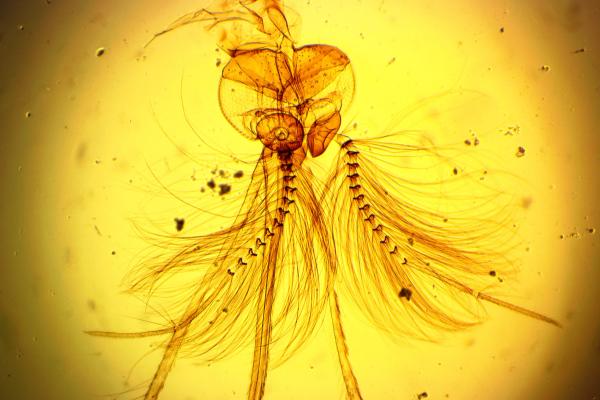
The Midge Misconception: What Those "Mosquitoes" at Lake Mývatn Really Are
"I saw mosquitoes at Lake Mývatn!" is something travelers often say, but there's a simple explanation: they aren't mosquitoes.
What visitors see are midges (Chironomidae), small flying insects that gather in groups, especially around Lake Mývatn. The lake's name actually means "Midge Lake" in Icelandic. These insects play an important role in Iceland's ecosystem, providing food for fish and birds.
Unlike mosquitoes, most midges don't bite humans. Those that do (like black flies) don't spread diseases the way mosquitoes can. Still, they can be annoying in large numbers, so bringing a head net or insect repellent for certain areas makes sense.
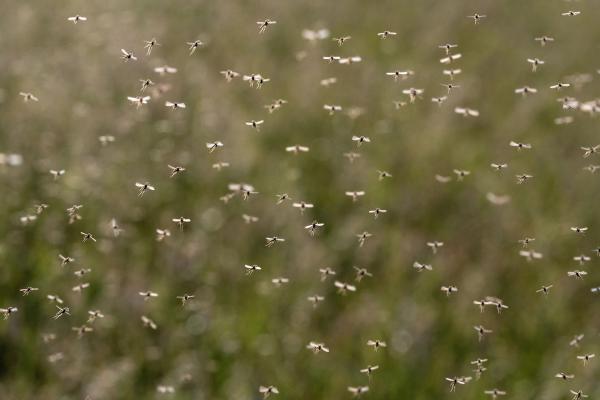
Why Are There No Mosquitoes in Iceland?
Iceland's mosquito-free status isn't random—it's the result of several natural factors that create an environment mosquitoes can't live in.
Unstable Climate and Freeze-Thaw Cycles
The main reason mosquitoes haven't settled in Iceland is the island's unpredictable climate. While mosquitoes need steady temperatures to complete their lifecycle, Iceland has what scientists call "freeze-thaw cycles"; about three major ones each year.
This climate instability creates problems for mosquito larvae, which need consistent warmth and standing water to grow. In Iceland, a pond might freeze, thaw, and refreeze multiple times, killing any developing larvae before they become adults.
Unlike nearby countries like Norway or Sweden, where summer temperatures stay warm enough for mosquitoes to develop, Iceland's temperatures change dramatically, even in summer. The North Atlantic climate creates conditions that are too unstable for mosquitoes to establish themselves.
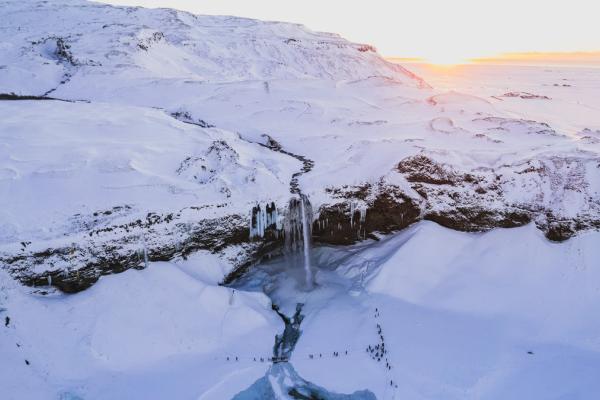
Geographic Isolation as a Natural Barrier
Iceland sits alone in the North Atlantic, about 850 miles from Scotland and 600 miles from Greenland. This isolation creates a significant barrier for mosquitoes, which aren't strong fliers and would need help to reach the island.
While mosquitoes could potentially arrive on ships, planes, or birds, the chances of enough breeding pairs arriving at the same time to start a population are small. Even if they did, they'd still need to survive Iceland's challenging climate.
This combination of isolation and harsh conditions has kept Iceland mosquito-free throughout its history, creating a unique situation that benefits both locals and visitors.
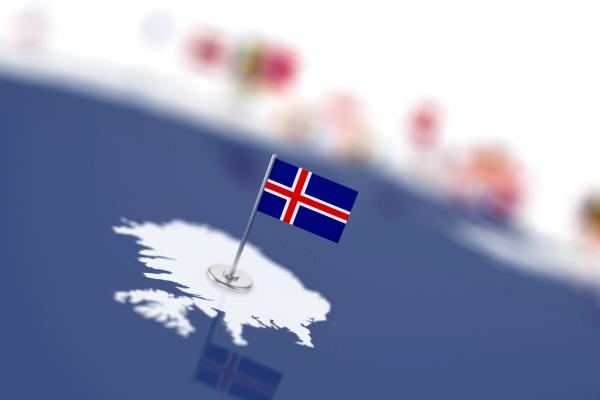
Iceland's Unique Ecosystem and Soil Composition
Some researchers think Iceland's volcanic soil might also help keep mosquitoes away. The island's soil and water have unusual chemical properties due to volcanic activity, potentially creating conditions that mosquito larvae can't survive in.
However, this theory has less scientific support than the climate and isolation explanations. While the soil composition might contribute, scientists generally agree that the unstable climate is the main factor preventing mosquitoes from establishing.
Iceland's ecosystem evolved without mosquitoes, so other insects, such as midges, filled those roles. This helps explain why the absence of mosquitoes hasn't created a gap in Iceland's food web.
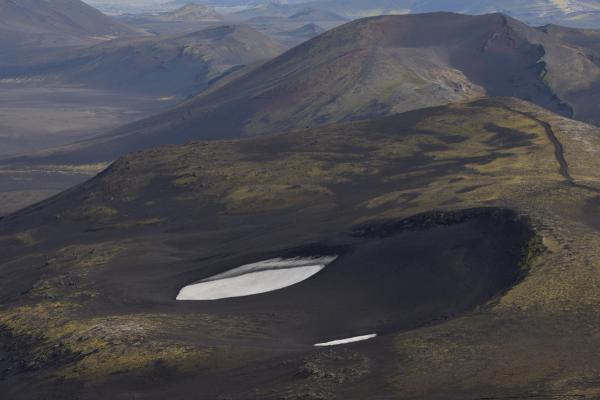
Climate Evolution and the Future of Iceland's Mosquito-Free Status
Iceland's mosquito-free status might not last forever. Climate is gradually changing, and with it the very conditions that have kept mosquitoes at bay for centuries.
Over the past twenty years, Iceland's average air temperature has risen by about 2 degrees Fahrenheit. This warming has already brought approximately 200 new insect species to the island, such as the white-tailed bumblebee, the Tree Bumblebee, and the Elfpunkt Ladybird, and mosquitoes could eventually join them.
Climate models suggest that as temperatures continue to rise, Iceland's freeze-thaw cycles might become less frequent. If summer temperatures become more stable and water bodies maintain consistent temperatures for longer periods, conditions might become suitable for mosquito larvae to develop fully. However, Iceland’s weather remains unpredictable, with some months being colder than average and others hotter. Even in the same month, the average varies from region to region.
The most likely new arrivals would be mosquito species from Scandinavia or the British Isles, which are already adapted to cooler northern climates. Species like Aedes communis or Culex pipiens could potentially survive in a warming Iceland.
As of 2025, no established mosquito populations have been found in Iceland. The country's naturally windy conditions and still variable weather continue to provide some protection, though researchers are monitoring the situation closely.

What This Means for Travelers in 2025
For travelers planning an Iceland trip in 2025, the mosquito-free status means enjoying outdoor activities without the usual concerns about mosquito bites or diseases.
This is particularly helpful for activities like:
- Camping near water sources (which would typically attract mosquitoes elsewhere)
- Hiking during dawn or dusk (when mosquitoes usually feed in other countries)
- Exploring wetlands and ponds without constant swatting
- Taking photos without mosquito interruptions
- Eating outdoors in peace
However, travelers should still prepare for midges, especially around Lake Mývatn during summer. While not mosquitoes, these insects can gather in large groups. Bringing a head net and insect repellent is a good idea if you plan to visit this region between June and August.
The best seasons for minimal insect encounters are late spring (May) and early fall (September), when temperatures are still pleasant for outdoor activities but midge populations are typically lower.

How Iceland Compares to Other Northern Destinations
Iceland's mosquito-free status becomes even more notable when compared to other northern destinations, which often have large mosquito populations.
Alaska, northern Canada, and parts of Scandinavia are known for their dense summer swarms of mosquitoes. In Alaska's Yukon Delta, mosquitoes can emerge in such numbers that they've been known to harm caribou. Greenland, despite being colder than Iceland, has at least two species of mosquitoes.
This difference ultimately stems from variations in climate patterns. While these other northern regions have more stable summer temperatures, Iceland's position in the North Atlantic creates more variable conditions. The Gulf Stream influence on Iceland creates the temperature changes that have historically prevented mosquitoes from establishing.
For travelers who have experienced the mosquito clouds of the Arctic Circle in summer, Iceland offers a pleasant alternative. You can explore similar landscapes and enjoy similar activities, but without needing head nets, constant repellent, or rushed tent setups.

Conclusion
Iceland's mosquito-free status is a remarkable natural phenomenon and a significant advantage for travelers. While you might see other insects, particularly midges, around Lake Mývatn, the absence of mosquitoes makes outdoor exploration more comfortable and alleviates concerns about mosquito-borne diseases.

